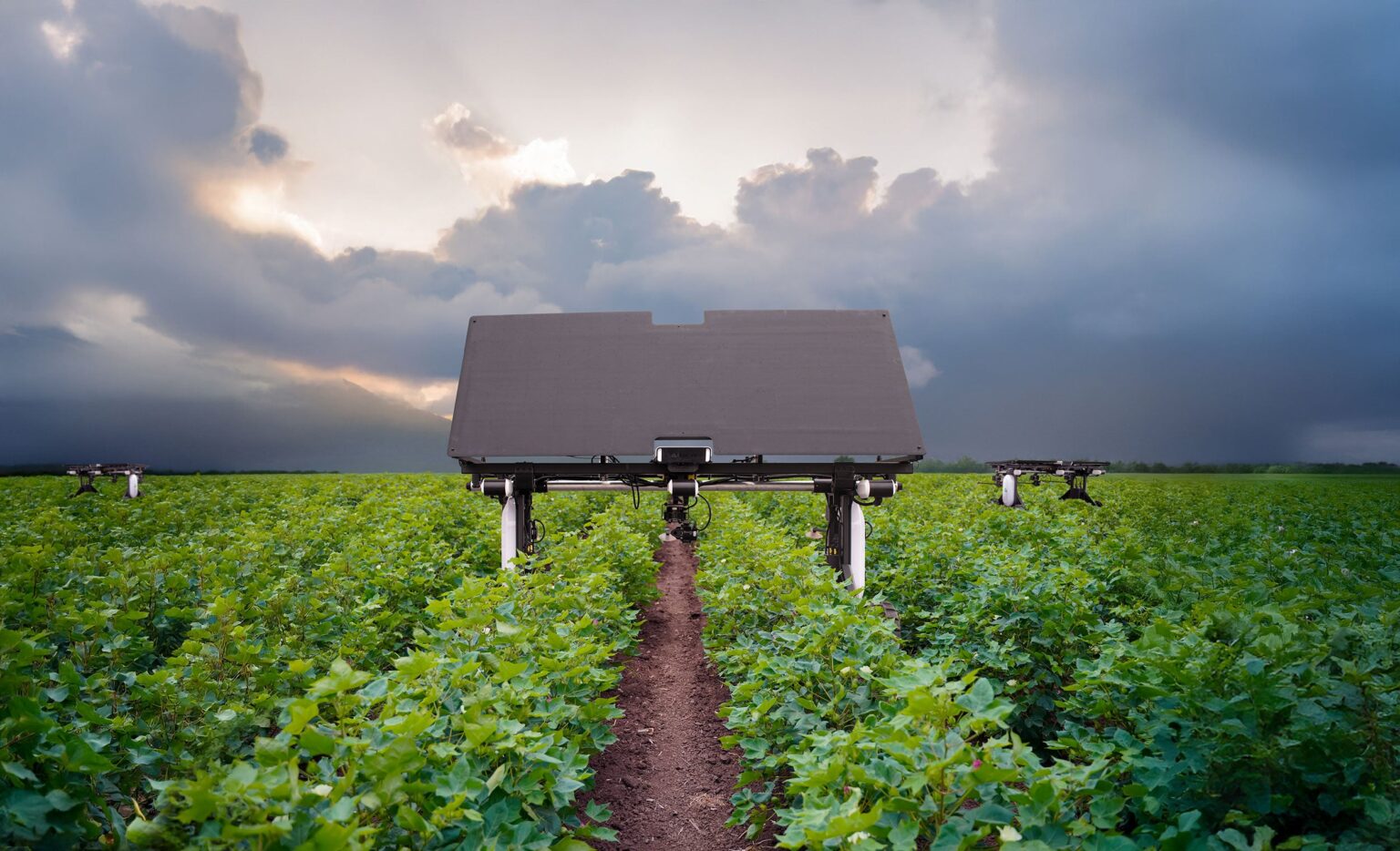AI-driven agricultural technology company Aigen has debuted its Element gen2 robot, designed for daily weed control in cotton, soy, and sugar beet fields. The machine features a wider and taller design than its predecessor, which was designed by a former Tesla engineer and has been on the market since last year.
The company says that the update is based on more than 10,000 hours of real-world farm experience and expands the brand’s reach by millions of acres worldwide. The solar-powered Elements use onboard AI vision to identify and eliminate weeds with precise ground strikes. They are available for purchase now, with delivery slated in 2026.
Element robots have all-wheel drive to handle real farm conditions — such as rain, mud, slopes, and rough terrain — and are built with durability in mind.
The gen2 launch accompanies a strategic partnership with Bowles Farming Company, a sixth-generation family farm in California’s Central Valley. Robotic crews will weed Bowles Cotton fields for the entirety of the 2025 growing season.
“We’ve begun working with the Element gen2 units in our Pima cotton fields for the 2025 season, and while it’s still early, we’re looking forward to evaluating their performance as the season progresses,” said Cannon Michael, President/CEO of Bowles. “Understanding how these machines perform at scale and under real-world conditions will help us determine their long-term fit in our operation.”
Aigen says the Element gen2 has several improvements over the original Element, including:
- 50% more power — Enhanced solar panels and battery storage system ensure all-day operation without fuel
- 4x AI compute — Significantly faster weed identification and dynamic crew coordination
- New stereo depth perception — Improved accuracy for detecting weeds at various growth stages and more precise weed strikes
Founded in 2020, Aigen develops solar-powered autonomous robots for crop management. The goal is to find alternative ways to combat weed species that are becoming increasingly resistant to some active ingredients in herbicides. The machines utilize an intelligent mesh network that allows the robots to communicate as a crew, with no farmer intervention needed.
“Aigen wouldn’t have been possible a few years ago, because the technology wasn’t there. Today, we have a great team working on the cutting edge of AI, robotics, electric motors, and solar power,” said Rich Wurden, co-founder and CTO of Washington-based Aigen. “Thanks to technological advances in all those areas and the incredible work of our team, we are automating farming solutions that have worked for thousands of years and helping farmers get chemicals off their farms and out of our food.”



